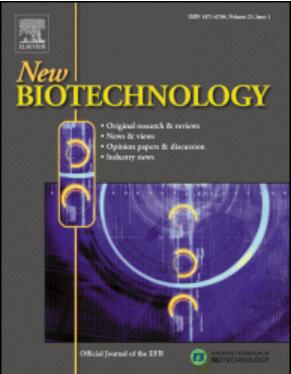靶向KRAS蛋白驱动突变的定点抗体
IF 4.9
2区 生物学
Q1 BIOCHEMICAL RESEARCH METHODS
引用次数: 0
摘要
Kirsten大鼠肉瘤病毒癌基因同源物(KRAS)是人类癌症中突变最多的癌基因,在大约30% %的肿瘤中发现。这些突变主要由密码子G12的单碱基错义改变组成。虽然大量的工作集中在开发KRAS突变的等位基因特异性抑制剂上,但突变特异性抗体(Abs)在很大程度上仍未被开发,只有少数研究用途的目录抗体可用。在这项研究中,我们采用专有的Epivolve技术开发了靶向KRAS致癌驱动突变KRAS G12D的位点定向单克隆抗体(mab)。这些位点定向单克隆抗体显示出高的结合亲和力,平衡解离常数(KD)在纳摩尔范围内,与野生型KRAS相比,对KRAS G12D的亲和力高出1000倍以上。使用纯化的KRAS蛋白变体和含有G12D突变的肿瘤细胞系进行的Western blot分析证实了这些单克隆抗体的高特异性。此外,免疫细胞化学分析显示,在G12D突变的癌细胞中,位点定向单克隆抗体与内源性表达的KRAS共定位。这些位点定向单克隆抗体的高亲和力和特异性突出了它们在针对KRAS驱动突变的诊断应用和治疗开发方面的潜力。本文章由计算机程序翻译,如有差异,请以英文原文为准。
Site-directed antibodies targeting driver mutations of the KRAS protein
Kirsten rat sarcoma viral oncogene homolog (KRAS) is the most mutated oncogene in human cancers, found in approximately 30 % of tumors. These mutations primarily consist of single-base missense alterations in codon G12. While extensive efforts have focused on developing allele-specific inhibitors for KRAS mutations, mutation-specific antibodies (Abs) remain largely unexplored, with only a few research-use-only catalog Abs available. In this study, we employed the proprietary Epivolve technology to develop site-directed monoclonal Abs (mAbs) that target KRAS oncogenic driver mutation KRAS G12D. These site-directed mAbs demonstrate high binding affinity, with equilibrium dissociation constants (KD) in the nanomolar range, showing over 1,000-fold greater affinity for KRAS G12D compared to wild-type KRAS. Western blot analyses using both purified KRAS protein variants and tumor cell lines harboring G12D mutations confirmed the high specificity of these mAbs. Furthermore, immunocytochemistry analysis revealed co-localization of the site-directed mAbs with endogenously expressed KRAS in cancer cells bearing G12D mutations. The validated high affinity and specificity of these site-directed mAbs highlight their potential for diagnostic applications and therapeutic development targeting KRAS driver mutations.
求助全文
通过发布文献求助,成功后即可免费获取论文全文。
去求助
来源期刊

New biotechnology
生物-生化研究方法
CiteScore
11.40
自引率
1.90%
发文量
77
审稿时长
1 months
期刊介绍:
New Biotechnology is the official journal of the European Federation of Biotechnology (EFB) and is published bimonthly. It covers both the science of biotechnology and its surrounding political, business and financial milieu. The journal publishes peer-reviewed basic research papers, authoritative reviews, feature articles and opinions in all areas of biotechnology. It reflects the full diversity of current biotechnology science, particularly those advances in research and practice that open opportunities for exploitation of knowledge, commercially or otherwise, together with news, discussion and comment on broader issues of general interest and concern. The outlook is fully international.
The scope of the journal includes the research, industrial and commercial aspects of biotechnology, in areas such as: Healthcare and Pharmaceuticals; Food and Agriculture; Biofuels; Genetic Engineering and Molecular Biology; Genomics and Synthetic Biology; Nanotechnology; Environment and Biodiversity; Biocatalysis; Bioremediation; Process engineering.
 求助内容:
求助内容: 应助结果提醒方式:
应助结果提醒方式:


